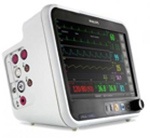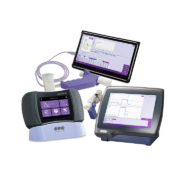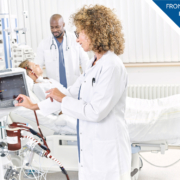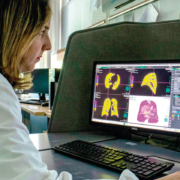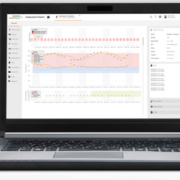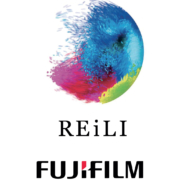Psychologist urges people to accept grief and not disengage amid Covid-19 pandemic
As the COVID-19 pandemic upends life as people know it, changing daily routines, limiting social interactions and shaking their sense of safety, a mental health experts from U.S. hospital Cleveland Clinic’s Mellen Center is stressing that it is perfectly acceptable to feel sad about all of it.
She points out that grief is a natural response to loss – whether it is the loss of a loved one, or the loss of a sense of normalcy.
“We are experiencing a lot of disappointment right now – in both small and big ways – and grief is going to be a factor,” says clinical health psychologist Amy Sullivan, PsyD, ABPP.
“It’s really important that we process this and stay connected to other people in safe ways,” she adds.
Regarding how people should go about dealing with all of these difficult and unexpected feelings bubbling up, she says there is no right or wrong way. However, she offers four suggestions that can help people to cope with current events.
1. Look through the lens of grief and process emotions
She says that the stages of grief can provide a helpful framework for navigating these complex emotions. Experts recognize these stages as denial, anger, bargaining, despair, and acceptance. However, these experts also know that people do not step neatly from one stage to the next in this exact order, she says.
“Grief can come in waves and change on a very regular basis. Our feelings can change on a daily, or even an hourly, basis,” she explains.
Dr. Sullivan adds it is normal to go from feeling despair one day to anger the next.
“The first thing we need to do is to recognize that it is normal to have these waves of emotions that are happening on a regular basis,” Dr. Sullivan says.
Next, she says, acknowledge the loss whether it is knowing or losing someone with COVID-19, losing jobs, missing friends or family.
“Those are all very sad, difficult things for people to manage,” Dr. Sullivan says.
“Feel what you are feeling – whether it is being overwhelmed, anxious, powerless or anything else, it can help to identify and name these emotions,” she advises.
“It can be quite powerful to sit with those feelings for a few moments – to really recognize those emotions and normalize them,” she says.
However, she advises people to set a time limit on this, suggesting they give themselves five minutes to feel that emotion, and then move on to something that they know is a positive coping skill for them.
“It is important for us to accept where our feelings are at the moment and process through them, and then move into a more positive position of acceptance,” she says.
She says this can be done by identifying their own best coping mechanisms
“This is a time when people need to become innovative and develop their own individual sense of coping that works for them during this time,” she says. Examples might include deep breathing, mindfulness exercises, journaling, talking with another person, or going for a walk.
“If it comes to a point where someone cannot handle these feelings on their own, they need to seek mental health help,” Dr. Sullivan says.
2. Fight the urge to disengage
Dr. Sullivan stresses that staying connected is a powerful tool for coping during hard times. Whether that comes in the form of video chatting or sending a good old-fashioned letter, staying in touch with family, friends, neighbours and coworkers can help people to keep a positive attitude, she says.
She adds that many trained mental and behavioural health professionals are currently seeing patients through virtual visits, so that if people are having trouble coping, this could be a solution.
3. Focus on what can be controlled
Dr. Sullivan says that when there is so much uncertainty about the future, it is easy for people to get carried away, playing out the worst-case scenarios in their heads, for example worrying about themselves or someone else getting COVID-19, or wondering if things will ever get back to normal.
“Anticipating negative events can bring a sense of anxiety or fear,” Dr. Sullivan says.
She advises that, instead of agonizing over the things that cannot be known or controlled, people should be aware of what they do have control over. For example, they can choose how much news or social media they consume in a day, and they can decide what they eat. She recommends being mindful about these choices, and focusing on staying in the present.
4. Be open to joy
Lastly, Dr. Sullivan advises people to find joy and gratitude in the small things, like a video chat with family members, or the rush of fresh air when they open a window or step outside. She adds that if they are under a lockdown order, they can find ways to appreciate the opportunity to step back from the hustle and bustle of everyday life and being home.


